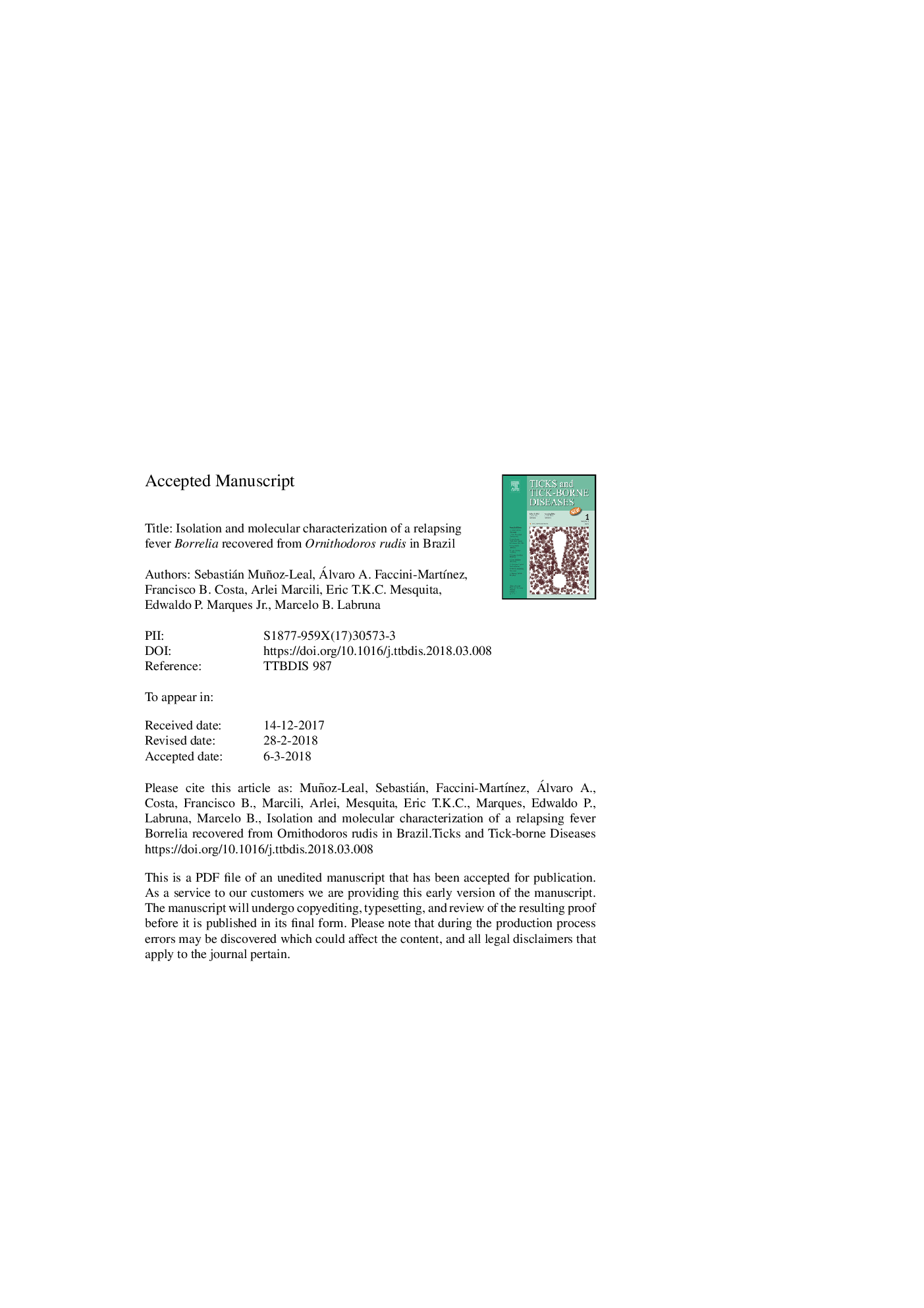| Article ID | Journal | Published Year | Pages | File Type |
|---|---|---|---|---|
| 8507214 | Ticks and Tick-borne Diseases | 2018 | 31 Pages |
Abstract
In South America, early reports from more than 50 years ago incriminated Ornithodoros rudis as vector of Borrelia venezuelensis, an agent of tick-borne relapsing fever (TBRF). Herein we report the rediscovery of O. rudis by means of morphological, biological and molecular analyses, which also comprise the first report of this tick species in Brazil. Phylogenetic analysis using partial fragments of mitochondrial 16S rRNA gene suggested that O. rudis forms a monophyletic group with Ornithodoros erraticus. By using laboratory rodents as hosts, we isolated a relapsing fever Borrelia from an infected O. rudis female. Phylogenetic analysis inferred from the rrs, flaB, and glpQ genes of Borrelia spp. placed the spirochete harbored by O. rudis closely related to Borrelia turicatae. Until further genetic evidence is not obtained we are referring to this O. rudis spirochete as B. venezuelensis. This is the first in vitro isolation of a TBRF Borrelia from South America. The presence of O. rudis in Brazil should not be overlooked, since this tick has been historically implicated in human cases of TBRF in Colombia, Panama, and Venezuela. This study provides new reports of O. rudis and B. venezuelensis after decades of scientific silence on these agents.
Related Topics
Life Sciences
Agricultural and Biological Sciences
Animal Science and Zoology
Authors
Sebastián Muñoz-Leal, Álvaro A. Faccini-MartÃnez, Francisco B. Costa, Arlei Marcili, Eric T.K.C. Mesquita, Edwaldo P. Jr., Marcelo B. Labruna,
